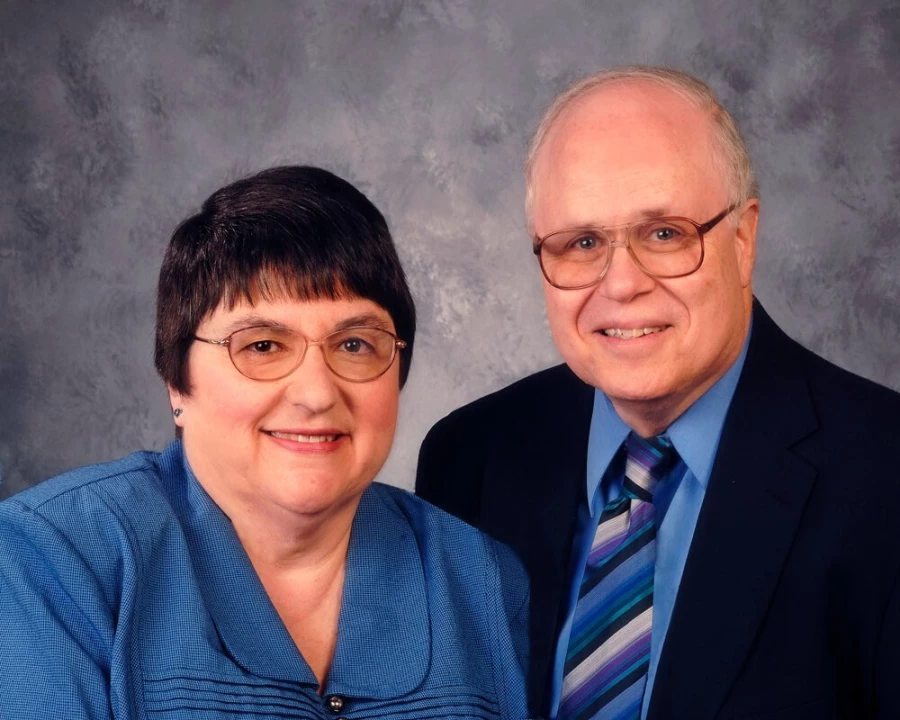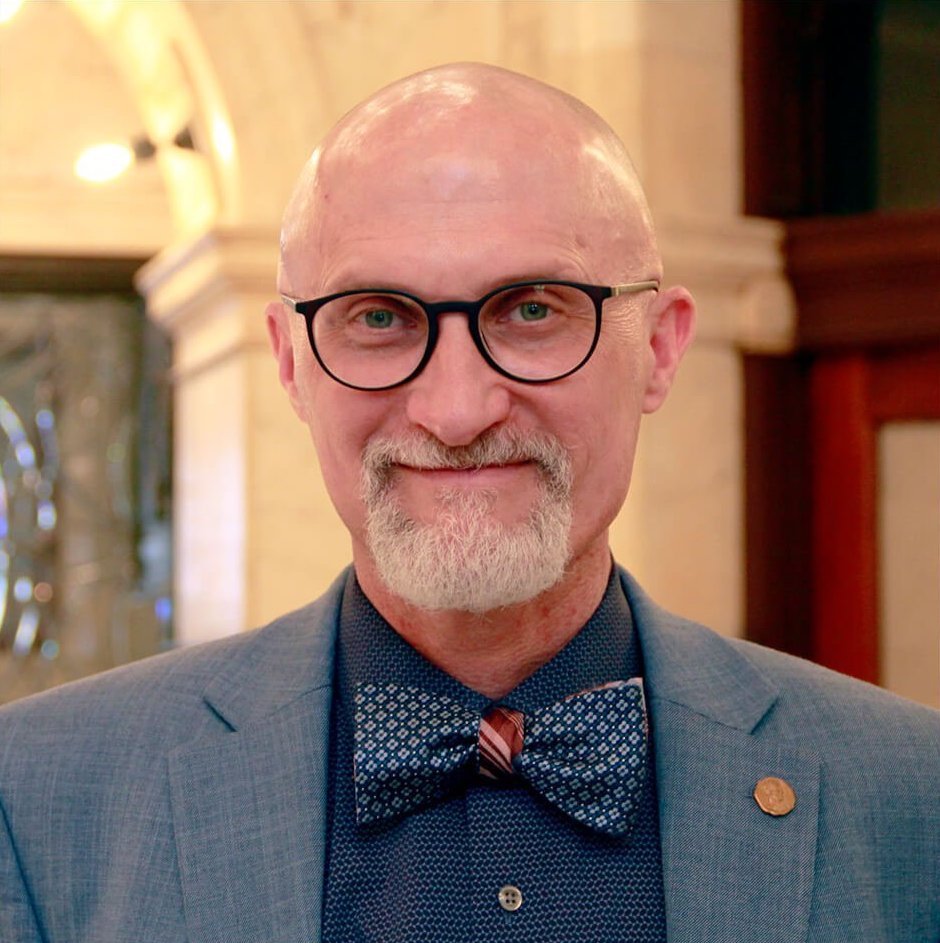“Tikkun Olam,” a phrase in Hebrew meaning to “repair the world,” sums up George and Myra Gordon’s many community contributions, including education, recycling, and planting trees.
Their multiple involvements are legend. Between the two, there are almost 60 years of environmental activism, generations of Illinois State University students taught, a reasonable voice in local politics heard, and local philanthropy elevated to a new level.
Both were raised in progressive Reform Jewish households, with George’s father a rabbi who served campus communities through the Hillel Foundation, and Myra growing up in Memphis, Tennessee in a literate family of printers. George’s father served students in Madison, Wisconsin, and Philadelphia, where George spent his childhood.
George completed his college career at Penn State, the University of Wisconsin in Madison, and Syracuse University, where he received his doctorate. Public administration was his interest and he traveled to Knoxville, Tennessee to research the Tennessee Valley Authority, where he met University of Tennessee student Myra. She took the university’s “Volunteer” mascot to heart.
An early job with the Girl Scouts brought Myra to St. Louis and eventually to Normal. George began teaching political science at Illinois State University in 1970 and the two married in 1972. Like many, they saw ISU as a brief sojourn but instead grew as the community did, raising their two children here, Dan and Rachel.
Looking for a volunteer opportunity in the early 1970s, Myra became involved in Operation Recycle, where semitrailers were parked for monthly one-day pick-ups of recyclable goods. She reached out to local faith communities to see if each could volunteer one Saturday a year to staff a drop-off location. In the early 1980s, then Mid-Central Community Action director Carol Reitan offered Myra a part-time job, using recycling as a job training platform for those who had problematic work records. This eventually expanded both Operation Recycle and Myra’s employment to full-time. Operation Recycle is today’s Ecology Action Center (EAC), with which both Myra and George have had long board tenures, with George serving as McLean County’s representative for almost 20 years.
George taught multiple classes at ISU, from the basic introductory classes to his specialty in public administration. George worked hard to ensure that his classes covered a full spectrum of political thought, welcoming student input, no matter their political affiliation. Students who completed his classes and then pursued successful careers in government and in the private sector make him especially proud. Multiple students keep in touch and return for visits. George co-wrote a textbook on public administration that was published this year in its twelfth edition.
George first ran for the McLean County Board in 1994, losing that time, but winning two years later. When he joined the Board, there were only three Democratic members. George quickly intuited that he needed to collaborate and build relationships across the aisle. This gained him respect, and although the majority party chooses committee chairs, Republican County Board chair Mike Sweeney asked George in 2000 to head the Land Use and Development Committee. Gentle persuasion, friendship, and mutual respect allowed George to win key votes, without hunting for headlines. He served until 2020.
Myra stepped away from Operation Recycle in the late 1980s. She then completed a master’s degree in English at ISU, which opened up the technical writing field to her and led to an internship that turned into an 11-year career at State Farm. During her years there, she served on the board of the Illinois Prairie Community Foundation (IPCF). When IPCF needed an interim executive director after Myra had retired from State Farm, she answered the call and found her dream job. An anticipated two or three months as interim led to six years of service.
The IPCF grew under Myra’s leadership. When she began, the organization had $7,000 annually to share in community grants; when she left, that figure had grown to more than $100,000. Together with the IPCF supporters, she initiated the Women to Women Giving Circle, Youth Engaged in Philanthropy, and helped establish the Foundation as a fiscal sponsor for smaller organizations. She found the work “fascinating” and described fundraising as an “art” that helps people create living endowments through which they can enjoy the results of their generosity.
The two remain active at Moses Montefiore Temple, where George has spent years as the choir director. Their latest ambitious environmental undertaking is helping the EAC effort to plant 10,000 trees a year for ten years. “Who doesn’t love trees?” Myra asks.
Through environmental stewardship, calm deliberation in local government, expanding community giving opportunities, and lifetime teaching, both George and Myra have lived Tikkun Olam, healing and restoring not only this community, but the world.

